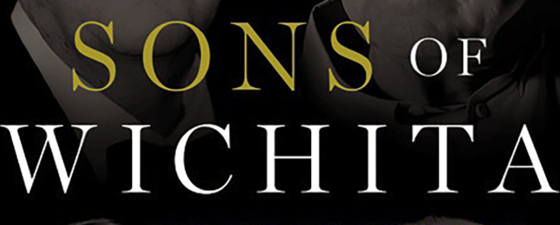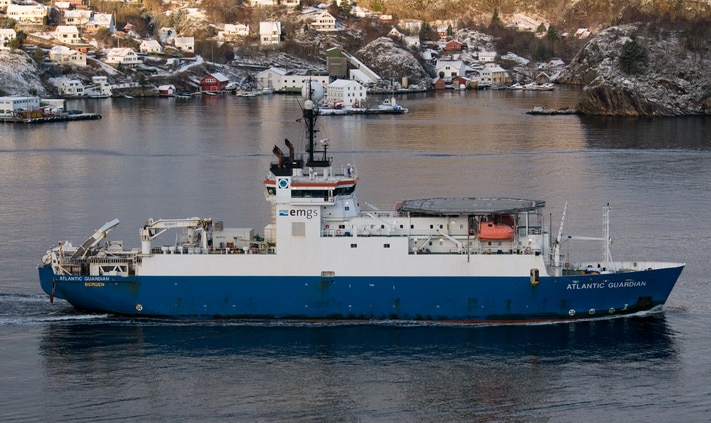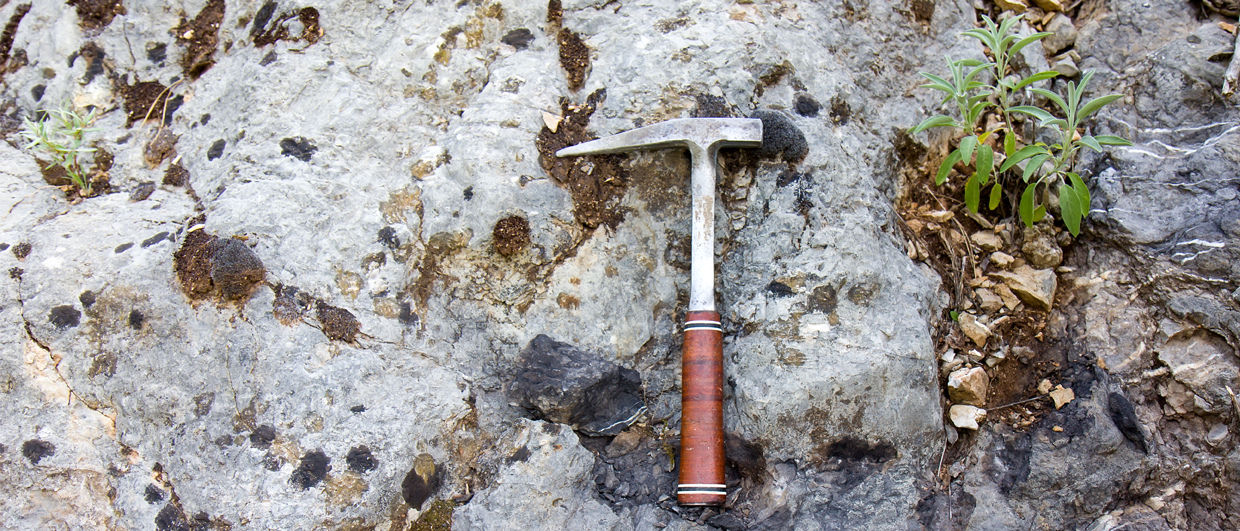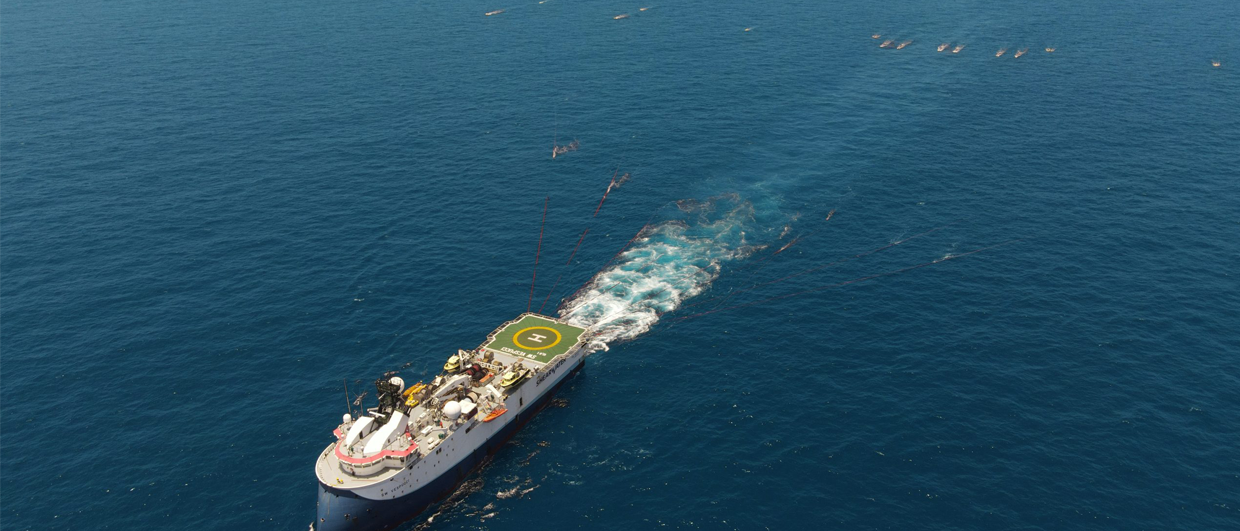The story of the infamous Koch brothers is both riveting and cringe-inducing, a painful confirmation of everything your mother told you about the evils of money, its power to destroy families and corrupt the soul. Put it on TV as a drama and nobody would believe it: it is the modern-day real-life unfinished soap opera that has been shaping US politics, society and corporate culture over the last fifty years. The story is told with clarity and objectivity, and a marked lack of salaciousness, by investigative journalist Daniel Schulman.
Explosive Relationships
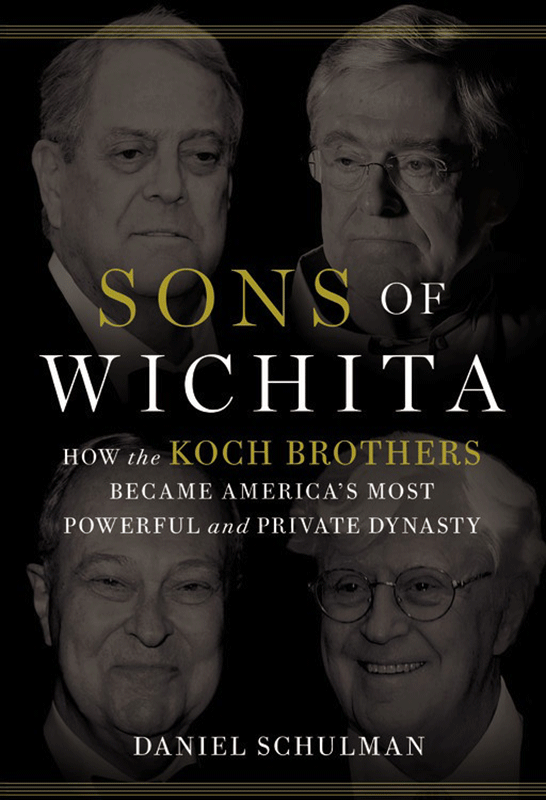 Sons of Wichita Cover ImageWhat a plot! Four sons born to a rags-to-riches industrialist and a wealthy socialite, four boys competing for the attention and love of a father whose mantra was work and discipline, a father who encouraged his children to physically fight. The eldest, Frederick, an art-loving confirmed bachelor, never understood by his father; second child Charles, who swallowed his father’s philosophy whole – the ‘evils of government’ rhetoric and the relentless focus on the bottom line; twins David and Bill, competitive and jealous, still playing ‘King of the hill’, a battle for dominance, decades into adulthood.
Sons of Wichita Cover ImageWhat a plot! Four sons born to a rags-to-riches industrialist and a wealthy socialite, four boys competing for the attention and love of a father whose mantra was work and discipline, a father who encouraged his children to physically fight. The eldest, Frederick, an art-loving confirmed bachelor, never understood by his father; second child Charles, who swallowed his father’s philosophy whole – the ‘evils of government’ rhetoric and the relentless focus on the bottom line; twins David and Bill, competitive and jealous, still playing ‘King of the hill’, a battle for dominance, decades into adulthood.
Where did it take them? Koch Industries exploded from a $70 million annual revenue company in the early ’60s to an extraordinary $115 billion today, from employing 650 people to over 100,000 in 60 different countries. It has become the second largest private corporation in the US, topped only by Cargill. The engineering company that Fred Koch started in the 1920s focused on improving refinery thermal cracking; the sons – led by Charles – have expanded it into manufacturing, distribution and the trading of key commodities and chemicals. Its products are consumed by every American every day. Charles and David are believed to have fortunes of over $40 billion each, holding joint sixth place in the list of wealthiest men on the planet. Frederick and Bill are multi-millionaires.
But with explosive growth has come explosive relationships. The courtroom has been the stage for the unraveling of the family. The one lesson the sons didn’t learn from their father – who himself endured two decades of patent litigation – was to avoid lawyers. There have been decades of lawsuits, starting with their father’s property and control of his charitable foundation. Each has involved armies of private investigators, the pilfering of each other’s trash, the bribing of janitors and the planting of bogus evidence. Bill even subpoenaed their mother shortly after she had suffered a stroke.
Corporate Outlaw
In true Dallas/Dynasty style, the perception of unequal inheritances developed into a boardroom war and an attempted hostile takeover by Bill and Frederick. A corporate ‘divorce’ was inevitable but achieved only after Bill brought a ‘laundry list’ of mismanagement charges into the courts. Two years later the two brothers again took Charles and David to court on charges of devious accounting and deception. A new settlement was reached, followed by Bill bringing a whistle-blower case, exposing Koch Industries’ extensive theft at wellheads. “They are the biggest crooks in the oil industry… this is organized, white collar crime,” he is reported to have said.
The image of Koch Industries as a corporate outlaw was fueled by the revelation of a corporate culture of ‘working the oil’ to the advantage of the company – millions of dollars of systematic theft, much of it on Native American lands. There has also been a swathe of environmental litigation. ‘Wheel-washing’ to mask slicks in water and the covering of land spills was, apparently, commonplace. When quizzed in court about deliberate cover-ups, many employees have pleaded the 5th amendment. Other court cases have found the corporation guilty of rigging a lottery of oil and gas leases, overcharging, and the dumping of toxic waste.
In the late ’90s Koch Industries again hit the headlines with the largest ever wrongful death judgment in US history, following the explosion of a butane-filled pipeline that ran yards from residential areas. The corporation’s policy of deliberately neglecting basic maintenance, in this case 583 areas of corrosion, was laid bare, resulting in a public beating and a punitive £296 million verdict, almost three times what the prosecution was asking for.
Political Differences
 Daniel SchulmanPolitical differences between the brothers have been the catalyst for much of the discord. Bill, who considered standing as a Democrat in the ’90s, is far out of line with Charles and David’s low-tax, small-government libertarianism. David and Charles have become infamous for their battle-plan to change American society, founding the Americans for Prosperity foundation and the Cato Institute, plus multi-million dollar support for universities, think tanks, policy institutes, and candidates. They are believed to have far outspent corporations such as ExxonMobil and have become the scourge of the left and the climate change lobby. However, even in this formidable movement there has been a marked lack of harmony: Charles and David have found themselves at odds with Tea Party members over issues of gay marriage and immigration, and even within their own Cato Institute, the battle for control became nasty and personal. “What I learned is, never piss off a billionaire,” an exiting director quipped.
Daniel SchulmanPolitical differences between the brothers have been the catalyst for much of the discord. Bill, who considered standing as a Democrat in the ’90s, is far out of line with Charles and David’s low-tax, small-government libertarianism. David and Charles have become infamous for their battle-plan to change American society, founding the Americans for Prosperity foundation and the Cato Institute, plus multi-million dollar support for universities, think tanks, policy institutes, and candidates. They are believed to have far outspent corporations such as ExxonMobil and have become the scourge of the left and the climate change lobby. However, even in this formidable movement there has been a marked lack of harmony: Charles and David have found themselves at odds with Tea Party members over issues of gay marriage and immigration, and even within their own Cato Institute, the battle for control became nasty and personal. “What I learned is, never piss off a billionaire,” an exiting director quipped.
Now in their 70s, the brothers are believed to have reached a level of peace, but the three youngest have a collection of tragedies and misadventures between them: acrimonious divorces, accusations of domestic violence, a son’s speeding that killed a child, an aircraft accident, illness, a lawsuit for abduction, $2m spent on espionage to win a boat race, a need for bullet-proof cars to take children to school.
With regard to Koch Industries, the corporate mantra is now, apparently, 10,000% compliance with environmental regulations: there has been a widescale offloading of leaky pipelines. Schulman abstains from comment but notes that the company is now focused on the less regulated commodity and energy markets.
To read Schulman’s book is to bring to mind so many popular aphorisms, the most obvious of which is ‘Money isn’t everything’. This is a very readable soap opera with a moral – many morals. It is also an invaluable insight into America’s current political and corporate culture. And of course, the story isn’t over yet.

